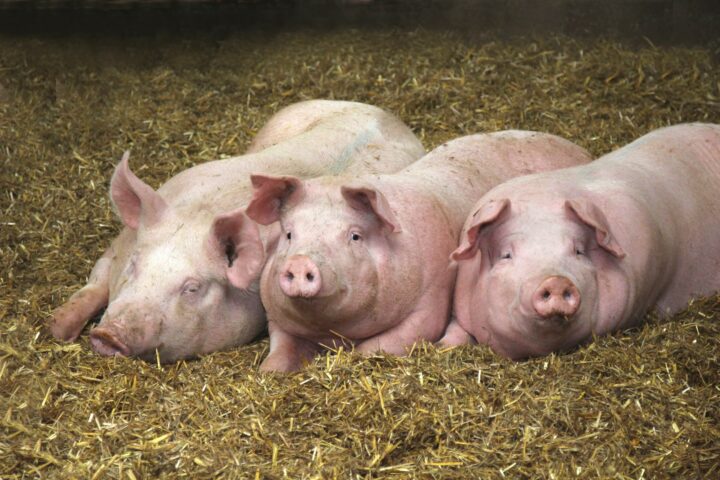
Precision breeding – England allows cultivation of gene-edited crops
A regulatory change in England allows the commercial use of new breeding technologies. Until now, these technologies had been regulated in accordance with the same restrictive rules as in the EU. As a result of the new law, English farmers are now allowed to grow crops that have been bred using genome editing. This gives England’s farmers a new tool in the fight against climate change and for more sustainable agriculture.
Tuesday, April 4, 2023
The BBC is reporting on new breeding technologies in England. With the Precision Breeding Act, England is taking a giant step into the future. New breeding technologies (NBT), such as genome editing, are approved for commercial use as of March 23, 2023. The term “genome editing” refers to biotechnological processes that enable scientists to edit a plant’s DNA more precisely than ever before. The most well-known example is the Nobel Prize-winning CRISPR/Cas technique.
The method allows researchers to access exactly the right place in the genome of a plant and cut the DNA double strand. In this context, we refer to precision breeding or “gene scissors.” Precision breeding opens up new perspectives for faster development of more resistant plants. In the past, organic and conventional breeders alike have only had access to imprecise and slower methods that use radioactive irradiation or chemical treatment.
British researchers are celebrating
Researchers at the National Institute of Agricultural Botany (NIAB) and Rothamsted Research welcome the regulatory change. The new law will greatly simplify the testing of improved crops in the field – and thus also significantly accelerate research. Prof. Angela Karp of Rothamsted Research is bridging the gap to medicine: “We’ve already seen the huge benefits genome editing brings to areas such as medicine – it’s now time to apply the same sort of innovation, together with responsible regulation, to our food production,” she said. The researchers also emphasize that, in addition to England, many countries around the world already have their own regulations for organisms that are bred using genome editing, including Australia, Canada, Japan, Brazil, and Argentina.
Transgenic use remains prohibited
Natural and spontaneous mutations in plant genes occur all the time. These are small changes in the genetic material that sometimes give a plant advantageous properties, such as resistance to a particular disease.
Genome editing enables researchers to create specific mutations with pinpoint precision that could just as easily have occurred spontaneously. The Precision Breeding Act therefore allows only the use of cisgenic plants. This means the only plants approved for cultivation are those into which genes of their own species have been introduced or from which genes have been removed. Transgenic plants, on the other hand, into which genes foreign to their species are introduced remain prohibited.
Improved security of food supplies
The United Kingdom is a world leader in plant breeding. However, its research potential until now could not be fully realized due to regulatory restrictions. That is about to change. And according to Prof. Mario Caccamo of the National Institute of Agricultural Botany, this is also urgently needed. He reminds us of the current challenges facing agriculture: “When we look to how the population is growing and how much we are increasing our yields using traditional methods, we are lagging behind,” Prof. Caccamo told BBC News. “The projections show that we have to have an acceleration into how we can improve crops, otherwise we are going to be struggling to feed the world.”
The Agricultural Outlook 2022-31 released by the FAO and the OECD also supports the position that the world will need all available technologies to meet this challenge. This report also frames the need for increasing harvests in the context of the Paris Agreement on climate change. To achieve the zero hunger goal while keeping agricultural emissions on track to meet the Paris Agreement targets, the average agricultural productivity worldwide would have to increase by 28 percent over the next decade, according to the FAO and the OECD. That is more than three times the increase recorded in the preceding decade.
A tool for fighting climate change
As the BBC reports, the new breeding technologies also offer an opportunity to make plants more resilient to climate change. Heat and drought are also increasing in temperate climate zones. Growing conditions are becoming more difficult. Precision breeding makes it possible to breed new plant varieties that are adapted to climate change, in far less time than with conventional breeding methods. At the National Institute of Agricultural Botany, for example, new varieties are being created using conventional breeding methods (through cross-breeding, for example). But that generally takes ten to 15 years. The process takes too long to achieve rapid breeding success under the more difficult conditions caused by climate change, or to be able to significantly increase crop yields.
Sources
OECD-FAO Agricultural Outlook 2022-2031
Kindly note:
We, a non-native editorial team value clear and faultless communication. At times we have to prioritize speed over perfection, utilizing tools, that are still learning.
We are deepL sorry for any observed stylistic or spelling errors.
Potential of new breeding methods for Switzerland
Climate change is also making growing conditions more difficult for Swiss farmers. They, too, need new tools for keeping up high productivity in the future. New plant varieties are essential for this.The following ten examples show that new breeding methods are also attractive for Swiss farmers.
Related articles

Why consumers accept gene-edited foods on their plates
Acceptance of gene-edited foods increases when their tangible benefits are clear to consumers. Studies show that visible advantages for health, the environment or food security are key to public support.

What’s Really in Your Shopping Basket
Genetic engineering in our shopping basket? Yes – and much more often than we think. Whether it’s pasta, bread or vegetables: many of the everyday products we consume come from mutation breeding, which involves altering the genome and is considered safe. It’s high time to debunk the common myths.

Genomic breeding methods are not given a chance to prove themselves
Modern genomic breeding methods are legally classified as genetic engineering – and are therefore still effectively blocked. Yet we have been eating genetically modified plants for decades, just under the label of “classical mutagenesis.” The new, more precise techniques are regulated more strictly than the old ones, even though they are considered safer from a scientific perspective. A contradiction that urgently needs to be corrected. The EU is setting a good example.

No Pig Business: Why Testicle-Free Boars Are a Clear Win for Animal Welfare
New breeding methods are opening up new possibilities in both plant and animal breeding. They allow targeted genetic changes that can make animals more resilient, adaptable, and healthier.

